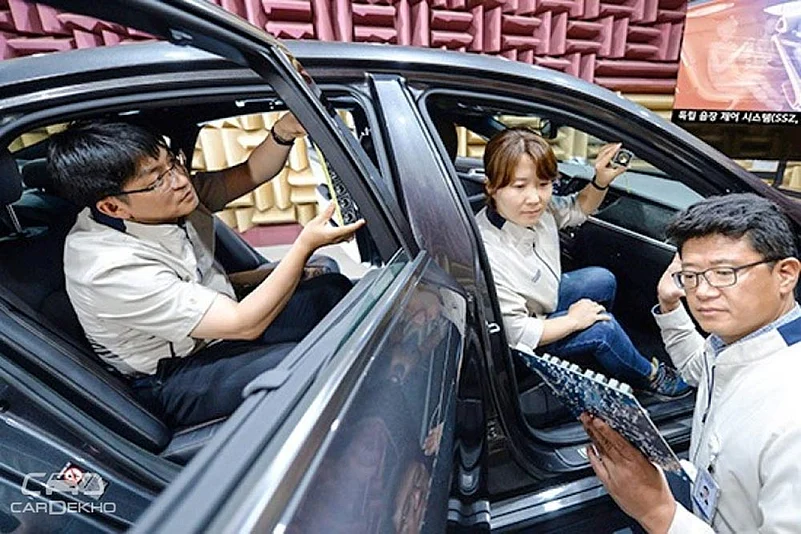Hyundai has showcased a new Separate Sound Zone (SSZ) audio system technology that promises to take the music listening experience in cars to a new level. The technology allows each passenger in the vehicle to experience music of his/her own choice without a headphone! This tech also enables passengers to attend phone calls and listen to vehicle alerts privately.
How does it work?
Hyundai says that the SSZ creates an acoustic field around the passengers and the driver, allowing them to hear isolated sounds. This is done with a help of a special multi-speaker arrangement that adjusts audio levels automatically for each passenger. It negates the overlap of sounds being heard in each seat, which creates an effect of noise cancellation without the headphones, says Hyundai.

Benefits?
- Each passenger can play music of his or her choice
- There’s no need to use headphones to do that. Not using headphones allows better passenger-to-passenger communication in the car
- Privacy while attending phone calls
- Alerts like navigation sounds can be made specific to the driver’s zone
Unanswered Questions:
- Hyundai has not yet clearly mentioned how many separate audio zones will be possible with the SSZ. If there are two zones only, those might either be divided in the front and rear or a zone for each side - left-side passengers or right-side passengers. It remains to be seen if there can be more zones than just two or not.
- What’s also a mystery is what would be the source of audio for different zones. Will passengers be able to play music for different zones via just smartphone pairing or if there will be an option for USB playback, etc. or not.

Launch:
The SSZ has been in development since 2014 and the carmaker says that the mass production system based on this technology will be seen in its vehicles within one to two years. As far as its India launch is concerned, we expect it come here soon after the international debut but expect it to be limited to the top of the line models in the Hyundai and Kia lineups.
Source: cardekho.com


























